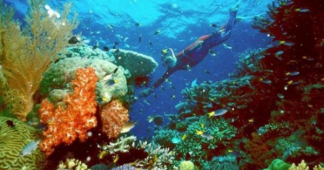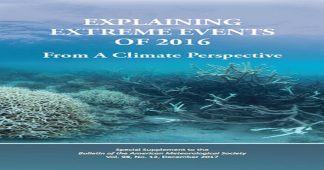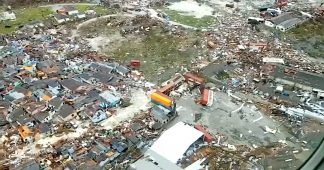By Harry Cockburn,
30 August 2019
The Great Barrier Reef in Australia has deteriorated to a “critical point” with its future outlook downgraded from “poor” to “very poor” due to global warming and local pollution, a major government report has concluded.
Immediate national and international action is required to improve the reef’s prospects, with the global climate crisis representing the greatest long-term threat to the natural wonder, according to the five-year Great Barrier Reef Outlook Report 2019.
The degradation of the world’s largest living structure has resulted in significant habitat loss for turtles, fish and sea birds. Back-to-back major coral bleaching events in 2016 and 2017 resulted in the death of around half of the entire 133,360-square-mile structure due to marine heatwaves exacerbated by rising global temperatures.
“The current rate of global warming will not allow the maintenance of a healthy reef for future generations,” the report said, stating “the window of opportunity to improve the reef’s long-term future is now”.
“Significant global action to address climate change is critical to slowing the deterioration of the reef’s ecosystem and heritage values and supporting recovery,” the authors said. “Such actions will complement and greatly increase the effectiveness of local management actions in the reef and its catchment.”
The report comes as Australia’s government has published figures indicating its greenhouse gas emissions have hit a seven-year high.
Other major threats to the reef include coastal development, farming pollution and illegal fishing.
The report is the third of its kind and monitors the continuing damage and degradation to the Unesco World Heritage site.
The report reflects the expanding area of coral killed or damaged by the severe bleaching events in recent years.
The Great Barrier Reef Marine Park Authority chairman Ian Poiner said: “The accumulation of impacts, through time and over an increasing area, is reducing its ability to recover from disturbances, with implications for reef-dependent communities and industries.
“The overall outlook for the Great Barrier Reef is very poor.”
The authority’s chief scientist David Wachenfeld said in a statement: “Gradual sea temperature increase and extremes, such as marine heatwaves, are the most immediate threats to the reef as a whole and pose the highest risk.
“Global action on climate change is critical.”
The United Nations World Heritage Committee expressed concern about bleaching in 2017 and the latest report could lead to the reef being reclassified by Unesco next year as “in danger”.
Australian environment minister Sussan Ley said she was not surprised by the downgrade in the reef’s condition given the damage done by recent cyclones and bleaching events over successive years.
She said her government is “building resilience in this important global reef” and is keeping its Paris commitment to reduce Australia’s greenhouse gas emissions by 26 per cent to 28 per cent below 2005 levels by 2030.
“I want to make the point that it’s the best managed reef in the world,” she added.
“There are those who will not be happy unless we declare the reef dead in the name of climate change, just as there are those who want to claim that nothing out of the ordinary is taking place,” she wrote in an opinion piece for the Sydney Morning Herald titled “The Great Barrier Reef is not dead… long live the reef”.











